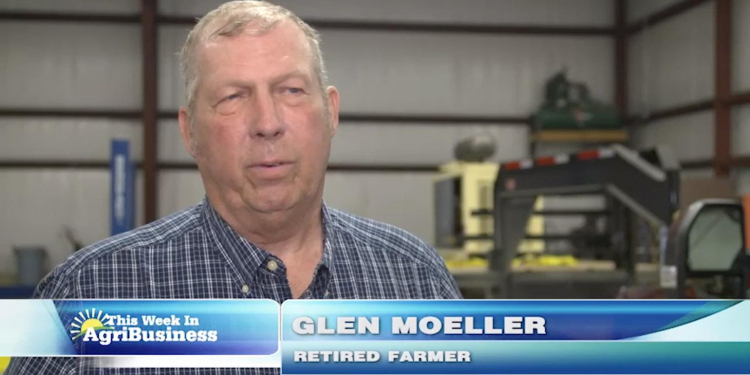We need to bridge the gap between the next generation of landowners and producers.
Meet Glen Moeller, an Iowa farmer and landowner who retired in 2015 after 40 years of farming. I recently had the opportunity to sit down with Glen to reflect on his farming career and discuss his outlook for production agriculture. Glen is a former president of the Iowa Corn Growers Association and a co-owner at Next Generation Ag Advocates.
Weather & prices
No conversation with a farmer goes without discussing weather and prices. This year alone has brought many weather extremes. However, Glen says some things change, some do not. Weather and prices will always be cyclical, just like agricultural. Weather extremes can cause crop shortages and challenges to food production in the short term, but is supportive to agriculture and the demand to produce food in the long run. This paints a bright picture for agricultural in the future.
Technology
In the 1980s Glen says:
- the U.S. met increased food demand by developing more lands for crop production such as in South America. Now, we have run out of new lands to bring into production, so advancements in technology will need to continue to allow producers to be more efficient and produce more from every acre while using less crop inputs. For these reasons we will continue to see more investment into technology, farmland, and agriculture to produce the food, fiber, and fuels that supply the world.

Capital requirements
Glen and his brother started a farm operation from scratch in the 1970’s. Glen remembers buying his first farm at a young age and although not easy, the income from the farm operation was able to pay for the farm itself. But look at the trends below:

Generally speaking, commodity prices have not changed much over this timespan which makes it more difficult to cash flow equipment purchases, farmland purchases, or renting farmland at current price levels. For this reason, the farmers of the future will need to use more and more non-conventional methods in order to maintain economies of scale and a competitive edge. Some are already doing it. More and more farmers are collaborating with each other, forming peer groups, and networking with land brokers, farm managers, and investors. Like it or not, this is the farm business model of the future.
Who will own farmland
The age of the landowner is the oldest in history and the industry is about to experience a significant transition of farmland ownership over the next 10 to 15 years.
Farmland continues to be more sought out by non-farming groups as well, who want to own it as a safe haven or alternative long-term investment. Some estimate 80% of rented farms may be controlled by those with limited or no farm experience.
Where will the next generation of landowners get their information? Who will they rely upon? Glen observes his own children eager for information which is typically found instantly on the internet or with a google search. We are also seeing this in agriculture with more and more internet-based companies and virtual or online formats for selling and renting farms.
Many things keep Glen up at night, but this future shift in farmland ownership and who landowners will rely upon on for their information are top of the list.
Education & communication
As both a farmer and landowner, Glen believes clear communication will be critical for the landlord and tenant relationships in the future. In retrospect, this was easier for Glen when he began his career. Everyone was from the farm and knew the lingo. Most leases called for the income and expense to simply be split equally. Now, over one-half of farms are cash rented, a trend that will likely continue.
As we turn over a new year, please consider where the parties in your farm relationships are getting their information. Can you be sure it is accurate and unbiased? Communication is typically at the root of every strong relationship. Brainstorm ideas and carry through on them. Invite the next generation to tour your farm and meet your family. Create an end-of-year farm report highlighting the activities on your farm. Make a phone call. Email farm pictures. Invite them to farm meetings or webinars that provide unbiased information from sources you trust.
In a lot of cases, it’s the little things that add up to big things and in my experience this also applies to maintaining and establishing new relationships on your farm. Downey has been helping farmers and landowners for the last 20 years with their family farm transition, leasing strategies, finances, and general land consultation. He is the co-owner of Next Gen Ag Advocates and an associate of Farm Financial Strategies.









